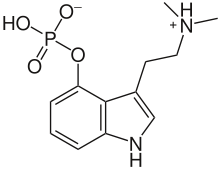The Parasitic Fungi That Turn Cicadas Into "Party Bugs"
Killer Buzz of Doom: The Parasitic Fungi That Turn Cicadas Into "Party Bugs"
Researchers at the University of West Virginia have discovered psychoactive drugs -- specifically, cathinone, an amphetamine contained in some plant species, as well as psilocybin, best known as the active substance in "magic" mushrooms -- in the corpses of cicadas that were infected with some entomopathogenic fungi of the genus Massospora.
Essentially Massospora fungi destroy the intersegmental membranes of their hosts, causing the hard abdominal tissue to fall away, exposing a mass of spores or "plug" spreading from the rear-end of the bug. Meanwhile, they also turn the hosts into sex fiends -- male cicadas, in particular, seem to loosen their sexual "preferences" which helps the fungus spread.
Massospora cicadina-infected "plugs" from periodical cicadas were found to contain the stimulant amphetamine cathinone (shown below) and several of its precursor chemicals.

Massospora platypediae-infected "plugs" from wing-banger cicadas were shown to contain the psychedelic substance psilocybin (shown below).

It is hypothesized that these chemicals are employed in order to prolong activities of the host which most benefit the spread of the parasitic fungus.
More information can be obtained from the source material at: https://www.biorxiv.org/content/early/2018/07/24/375105
The abstract of this research reads as follows:
Entomopathogenic fungi routinely kill their hosts before releasing infectious conidia, but select species keep their hosts alive while sporulating to enhance spore dispersal. Recent expression and metabolomics studies involving host-killing entomopathogens have helped unravel infection processes and host responses, yet the mechanisms underlying active host transmission in insects with Entomophthoralean fungal infections are completely unexplored. Here we report the discovery, through global and targeted metabolomics supported by metagenomics and proteomics, of the plant amphetamine, cathinone, in Massospora cicadina-infected periodical cicadas, and the mushroom tryptamine, psilocybin, in M. platypediae- and M. levispora-infected annual cicadas. The neurogenic activities of these alkaloids provide a hypothetical framework for a chemically induced extended phenotype of Massospora that alters cicada behavior by increasing endurance and suppressing feeding prior to death.
(images sourced under Creative Commons from Wikipedia)
Congratulations @mtaf! You have completed the following achievement on Steemit and have been rewarded with new badge(s) :
Click on the badge to view your Board of Honor.
If you no longer want to receive notifications, reply to this comment with the word
STOPCongratulations @mtaf! You received a personal award!
You can view your badges on your Steem Board and compare to others on the Steem Ranking
Vote for @Steemitboard as a witness to get one more award and increased upvotes!